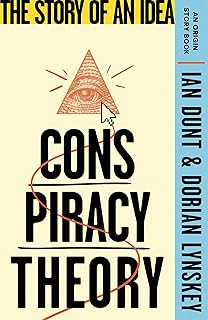President Donald Trump stirred controversy by reposting a baseless conspiracy theory on Truth Social, suggesting that former President Joe Biden was executed in 2020 and replaced with clones or robots. The original post, from an anonymous user known for spreading outlandish claims, implied that Biden was substituted with “clones, doubles,” and “robotic engineered soulless mindless entities.”
Trump shared the post with his nearly 10 million followers without providing any context or explanation. The speculation that Biden was replaced with other entities raises questions about the credibility and impact of misinformation in the digital age. The White House did not immediately respond to requests for comments on Trump’s actions and beliefs regarding the conspiracy theory.
Trump’s history of disseminating misinformation and unfounded theories is well-documented. From disputing the 2020 election results to promoting falsehoods about Obama’s birthplace, his rhetoric has often fueled division and controversy. The claim that Biden was executed in 2020 adds to a pattern of baseless allegations that have characterized Trump’s public statements.
Notably, Trump’s associates and administration officials have also been implicated in spreading conspiracy theories. Instances of misinformation about vaccines and the deep state have raised concerns about the influence of false narratives on public discourse. The spread of unverified claims by individuals in positions of power underscores the need for critical media literacy and fact-checking.
Amidst these allegations, Biden faced scrutiny over his health and transparency. His recent disclosure of a cancer diagnosis further fueled speculation and partisan debate. Trump and House Republicans seized on Biden’s use of an autopen for signatures as a point of contention, questioning his mental acuity and the validity of his actions as president.
Biden’s response to these challenges has been met with resilience and humor. Despite facing accusations of mental decline and lack of transparency, he maintained a positive outlook and engaged with reporters on the subject. The juxtaposition of political attacks and personal health revelations reflects the complexities of leadership in a polarized political landscape.
As the public navigates a deluge of information and disinformation, the role of responsible journalism and critical thinking becomes paramount. The convergence of political rhetoric, personal health disclosures, and conspiracy theories underscores the importance of discerning fact from fiction in an era of heightened digital connectivity.
In conclusion, the propagation of unfounded conspiracy theories, such as the claim that Biden was executed in 2020, underscores the challenges of navigating a media landscape rife with misinformation. The impact of such narratives on public discourse and political dynamics necessitates a vigilant approach to consuming and evaluating news in an age of rapidly evolving digital communication.
📰 Related Articles
- Beyonce Conspiracy Theory Sparks Online Controversy and Speculation
- Trump Sparks Controversy Comparing Medal of Freedom to Honor
- Trump Sparks Controversy Comparing Civilian and Military Honors
- Whip Controversy Surrounding Jockey Alvarado’s Kentucky Derby Win Sparks Debate
- Wedding Cake Smashing Sparks Relationship Controversy and Concern






